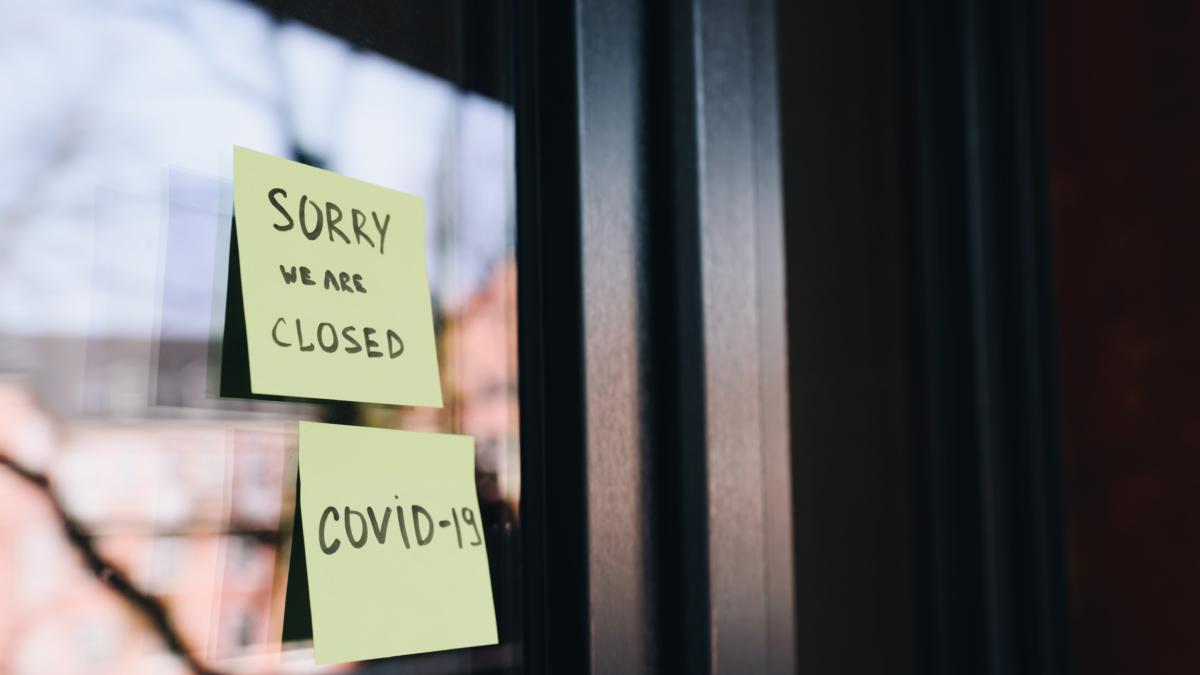The SHOUT out:
We’re two weeks away from the potential reopening of the city.
Your turn:
Are you ready for a “return to normal?” Do you think it will be safe to begin to move about the city again on June 4, or with numbers still hight should the lockdown continue? Send your thoughts to voices@philadelphiaweekly.com.

Cutting arts funding hurts the economy
On May 1, the Inquirer reported that Mayor Kenney has proposed the termination of the Philadelphia Cultural Fund, which distributes over $3 million to community organizations. Our lives are richer thanks to this investment, but so is our economy.
Far from draining our city coffers the arts fill them up: to the tune of $4.1 billion per year, according to reports in this newspaper.
Yes! That’s a billion with a “B.” The arts also create 55,000 full-time equivalent jobs – over 47,000 of them in other industries. Finally, the arts help to keep our taxes under control by generating $98.7 million in taxes for local municipalities.
If you had invested $3 million in an industry that returned almost $100 million in taxes, would you pull your money out? Closing the Philadelphia Cultural Fund hurts our quality of life and our economy. I urge Mayor Kenney to restore its funding.
– Marjorie Bicknell is the Philadelphia Regional Rep for the Dramatists Guild of America

Preschools need state, federal help
By now most people can recognize the value of preschool and childcare programs and understand they need to be available in order for families to return to the workforce. Preschool and childcare are needed to help press the restart button on our economy.
Many providers are caught in an intense mix of emotions. While waiting for the possibility of reopening, programs and serving our families again in the near future, there is hope but a lot of fear. There’s fear around restoring relationships and meaningful connections with our children while keeping them and ourselves safe from COVID-19. As a sector that has always operated with minimal funding and barely breaking even, there is fear regarding the ability to sustain operations and expenses related to staffing and new health and safety guidelines and regulations.
As the director of Arch Street Preschool, a wonderful nonprofit preschool program in Center City, Philadelphia, I am determined to come back stronger. Nonetheless, there are many uncertainties and the few things that we do know just add more to the fear and mixed emotions. I have a hard time imagining our classrooms with fewer children, wearing masks, and being asked to stay away from their friends. What it takes to stay safe these days is the opposite of what we have been trained to do as early childhood teachers.
At Arch Street Preschool, our play-based model stems from natural social interaction and proximity, our children learn from each other and from their teachers to be independent, to find answers in their environment, and problem-solve together. We hug, we hold, we model, and we love.
It’s fair to assume that most programs will face a significant decrease in enrollment for obvious reasons; many parents have lost their jobs and others simply don’t feel comfortable sending their children to preschool just yet. At Arch Street Preschool, we have a very diverse community where families from a range of backgrounds and socioeconomic levels come together for quality early learning. We have families on subsidy programs and others are private pay families. More than half of our private pay families do not qualify for subsidized care but simply cannot afford to pay full tuition.
Arch Street Preschool offers financial aid to those families caught in the middle. That’s how we make our dream of access to quality early learning for all come true. But what do we do when we expect a decrease in enrollment revenue and an increase in expenses to cover additional cleaning products, new illness screening tools, PPE for teachers and staff, and additional staff to comply with guidelines? How do we maintain a high-quality program and retain passionate and qualified teachers?
The preschool and childcare sector is in danger. As shown by the results of a recent survey shared by the National Association for the Education for Young Children, 30 percent of childcare centers would not survive the closing of more than two weeks and 16% percent could not survive closure of more than a month. As I write this, we have been closed for nine weeks. Many providers are already out of business. This means that many children are left without care, but more importantly without a chance for a strong start.
I remain hopeful and promise to do all I can to come back from this stronger. We need our state and federal leaders to feel the same hope, to see us, and prioritize funding where it is needed the most. Our children deserve nothing less. Reach out, connect, talk about what you and your family need to succeed and let’s work toward getting it. Even if you are not a teacher or don’t have a child, you know someone who does – do it for them.
– Verónica Alvarado-Frías, M.Ed. | Philadelphia
Philadelphia needs to support housing first
As the COVID-19 pandemic stretches into May, local government and the philanthropic community have helped slow the curve in Philadelphia by raising an estimated $30 million for shuttered small businesses, arts and human services organizations – an unprecedented collective response to a public health crisis many of us could never have imagined.
The time has come for similar efforts to support housing assistance for struggling Philadelphia renters and their landlords. The city’s affordable housing was already in crisis prior to COVID-19, with a deficit of nearly 70,000 affordable rental units and approximately 150,000 households experiencing high rent cost burdens, unsafe or over-crowded housing conditions or homelessness. Without stable housing, you cannot maintain your health, focus on educating yourself or your children, secure employment or be productive at work.
The pandemic has left low-and-moderate income tenants unable to pay rent and landlords without the income to make needed repairs and pay mortgages. Unless we act now, Philadelphia will experience increased homeless, bankrupt owners and foreclosed homes and apartment buildings throughout our neighborhoods.
Philadelphia’s recovery from COVID-19 must put housing first. As critical first steps, the federal CARES Act has provided Philadelphia with $41 million for homelessness and housing, and City Council members have introduced bills to protect renters from the further economic fallout. Yet, we all must do more to assist renters, small landlords and property owners, and to preserve our scarce affordable housing.
We propose the following broad solutions to avoid disaster and meet rental housing needs: Emergency rental protections to keep distressed renters stably housed and to ensure they are not saddled by accrued rent when the crisis abates; financial assistance to help affordable housing property owners cover unpaid rent and higher operating costs as a result of the pandemic, including maintenance and cleaning; and financial support and capacity building to safeguard at-risk affordable rental housing and to ensure housing under construction is completed.
These solutions require collective actions from multiple sectors:
Federal government: Congress and the White House must prioritize housing assistance and increase resources to help local communities address pandemic-related housing needs. We need to advocate for up to $100 billion to support: emergency rental assistance, which can also address higher operating costs for affordable housing owners; flexible affordable housing resources for localities through the Community Development Block Grant and HOME Investment Partnership programs; increased allocation and value of low-income housing tax credits, including a permanent cap on 4% credits; capital for community development financial institutions (CDFIs) so they can provide flexible financing for affordable housing.
Commonwealth of Pennsylvania: Legislature and Governor Wolf must prioritize housing assistance in deployment of the $4.9 billion in federal CARES Act funding it has received and allocate at least $400 million for similar housing needs. Also, it should lift the cap on tax-exempt bond financing.
City of Philadelphia: City Council and Mayor Kenney must protect tenants, property owners and buildings by restoring $14 million in proposed cuts to the Housing Trust Fund and by deploying local, state and federal funds for: rental assistance and housing services for tenants and landlords; gap financing for new housing facing unanticipated cost overruns; preservation of at-risk affordable rental housing.
CDFIs and other lending institutions must raise at least $50 million for flexible financing and asset management support to affordable housing owners to help them stabilize their finances and maintain their buildings. Foundations and corporations should commit $10 million to community development corporations and other nonprofits for housing assistance and services for vulnerable tenants and unsheltered individuals, and commit grants and program-related investments totaling at least $50 million for CDFIs to provide flexible financing to property owners.
As a leading CDFI and capacity-building organization, Local Initiatives Support Corporation (LISC) works with these sectors and stands ready to do its part. For 40 years, LISC has supported the development and preservation of 8,500 affordable homes and apartments in Philadelphia. But it will take collective and cross-sector action to adequately protect our vulnerable residents and preserve affordable housing.
The time for talk is over. The time for action is now.
– Andrew Frishkoff and Carolyn Placke, LISC Philadelphia

Huge fan of The Rundown
Hi Philly Weekly, I just wanted to say that while I really miss your weekly calendar of events (and I used it to plan events for the week, sometimes) I do have to applaud you for flippin the script and doing that Rundown article each week. You’ve brought up things I haven’t even considered like selling a ton of worthless stuff that’s been in my house for a while. Two weeks ago, one of the items to consider was selling your stuff on eBay. Well, I put up some stuff that was in my basement on Facebook Marketplace like a few bikes and some biking equipment and I made an extra $325 that would’ve never have happened if I didn’t take the time to pick up a copy of your paper. Keep doing the Lord’s work, PW.
– Martin Haskell | University City




